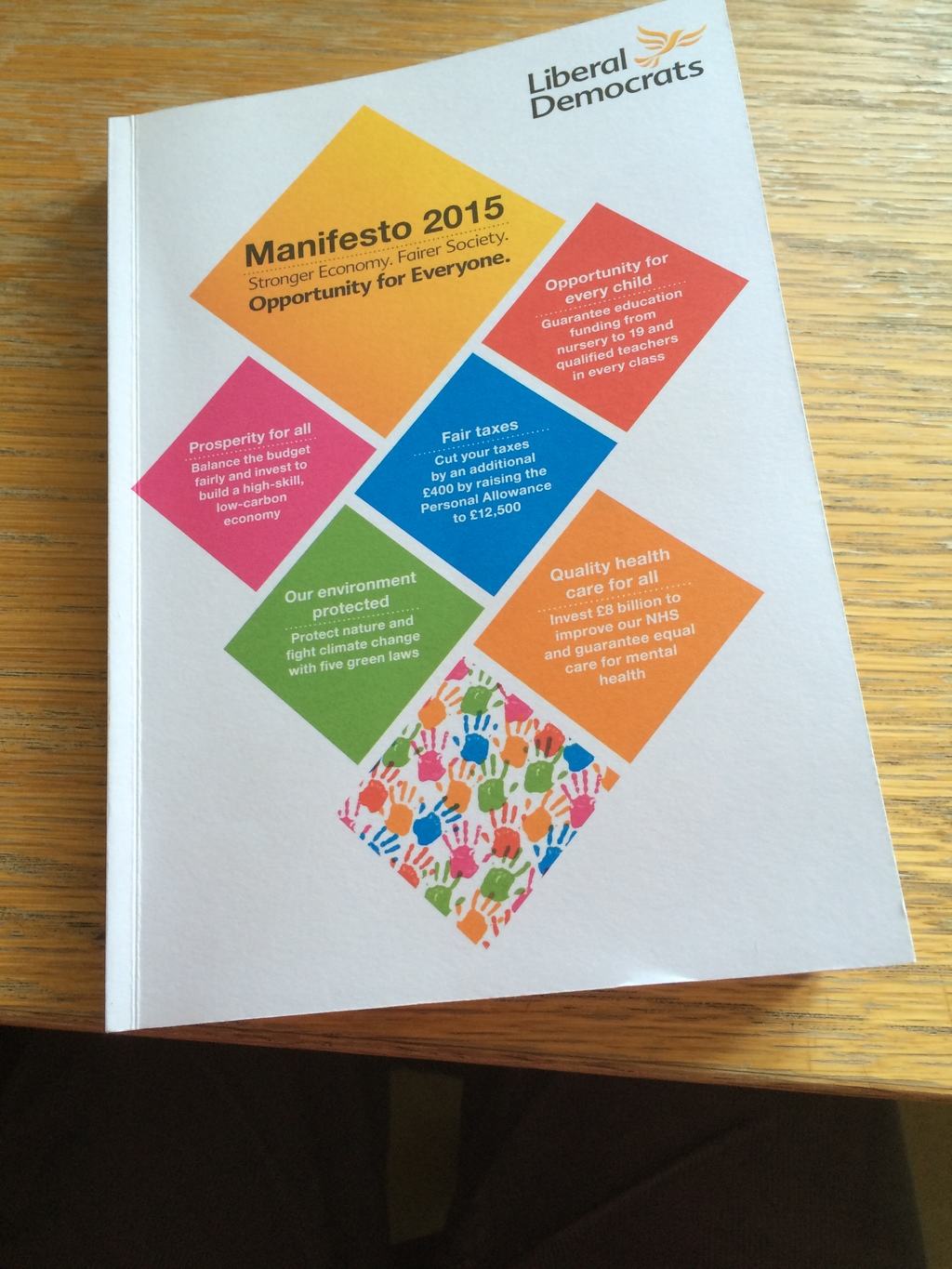In the shadow of events in Paris, the Liberal Democrats held their London conference last Saturday. For a party that most people think has ceased to exist, party members are in a surprising upbeat mood. Held a university building in Brentford, well out of the centre, the conference was nevertheless well-attended, cheerful and lively. Even as I delivered the Treasurer’s report just after lunch, the dullest piece of business in the whole day, there were dozens in the audience. I survived unscathed, and live on to be Treasurer of the regional party for another year.
And yet detached outsiders would not give much for the party’s prospects. The Mayoral and Assembly elections are in May 2016, and they are a critical test for the party. As things stand even winning the deposit in the Mayoral race (lost last time, in 2012) and any representation in the Assembly (only narrowly achieved in 2012), both of which need 5% of the votes, will be a challenge. The party has sunk into irrelevance in most people’s minds. But the party polls about 8% nationally, the same level that it achieved in the General Election. A result on this level is surely realistic, but would amount to no more than what City traders used to call “dead cat bounce” – bumping along the bottom, in a less colourful metaphor.
But things could be much better. With the Conservatives riven by differences over Europe, the effect of Labour’s lurch to the left uncertain, and with the other minor parties, the Greens and Ukip, seemingly having peaked, a whole range of possibilities opens up. The party is aiming for more than 8%, and so it should. There was a buzz of ideas for promoting the Party’s lead candidate, Caroline Pidgeon, the experienced and capable group leader on the Assembly, who is standing for both Mayor and leads the Assembly list – elected by proportional representation. Policy positions are being developed on housing, policing and taxis.
But these depend on attracting the attentions s of a flighty electorate. Building a more solid base for the future will take a lot longer. On what basis can that be done? One idea doing the rounds is to make a conspicuous stand on touchstone liberal issues, like supporting immigration and human rights. It is estimated that about 30% of Londoners have liberal views on these subjects. The Conservative and Labour parties are still circumspect because they draw so much other support from the other 70%. The talk was of targeting that 30%, who tend to be young and professional.
That’s all very well, but I worry. Some activists were concerned about a strategy based on just talking to people like us, rather than trying to reach out more widely. And though getting a large chunk of that 30% would transform the party’s standing, where would that lead? In order to get anything actually done the party has to engage with the other 70%, either directly seeking their votes, or working in coalition with parties that do. The party’s experience over last five years, in coalition with the Conservatives, have shown how difficult that can be. The party gets accused of breaching its principles, and then appearing irrelevant. Surely the party must try to develop a broader appeal from the start, alongside the core liberal one.
Two speakers at the Brentford conference gave a hint of what that might be. One was Ruth Dombey, leader of Sutton council, the party’s last council stronghold in London. She described how the party has maintained its remarkable record of success there. It is through a process of genuine dialogue with residents, going as far as possible to make them feel included (which, to be clear, means actually including them…). This is completely opposite to the normal model of elected dictatorship that most British politicians confuse with democracy. It is not easy, but Sutton has managed it over many years.
Ruth is a professional and experienced politician, and it wasn’t surprising that her presentation was slick and forthright. A second speaker was edgier. Teena Lashmore, though very much a professional, is new to politics. She led a policy consultation on dealing with knife crime and reaching out to communities. She made two important points: the first, like Ruth, was that politicians must do things with communities and not for them. This is the beating heart of community politics. But it is something that metropolitan elites usually don’t understand, not just politicians. Speaking to her during the tea break, Teena gave me an example of a memorial for victims of knife crime in her area; nobody thought to ask local people what they wanted, with the result a proposal was made that they found insulting.
The second point was that we must find ways of making local economies grow and become more inclusive. Free enterprise is the key to inclusion because it is empowering. Entitlements and handouts are not. She gave the example of a troubled estate where the management contract was awarded to a local enterprise, and not to one of the usual stripped down outsource providers; this contractor then started employing the local young people as apprentices; money stayed in the local economy; antisocial behaviour fell. Now regular readers of this blog will know that I am supporter of developing local economies, following campaigner David Boyle. But it had not struck me until Teena’s presentation just how powerful this idea is for developing inclusion in London.
These are critical ideas. Britain’s main political parties are still in the culture of doing things for the people they represent, rather than with them. Our whole centralised Westminster-bubble culture promotes that. The working ethos of the Labour Party is built on developing client communities that they dish out goodies to. Some Conservatives have toyed with something more inclusive, like David Cameron’s Big Society, but their thinking is more often driven by big business and trendy but narrow think tanks. Indeed, though the Lib Dems achieved much of their early successes in the 1980s and 1990s through community politics, success in Westminster seemed to be slowly corrupting them. And few Lib Dems really got the importance of developing local enterprise, and what this means for wider public policy, for example in commissioning and procurement.
Well now the Lib Dems have been largely ejected from the Westminster bubble. They must go back to the long, hard business of developing conversations with local communities. And it needs to start developing robust ideas for developing local, inclusive economies. That includes in London, and it is a promising basis for reaching out to communities of all ethnic dimensions, not excluding the more stressed white British ones.
It’s a long hard road, but the party has the culture and record to make it work. I hope it rises to the challenge.


